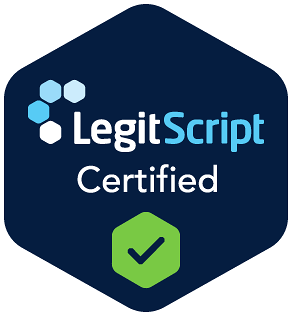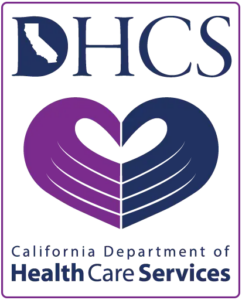Breaking free from addiction starts with finding the right support system. When you search for “drug detox centers near me,” you’re taking a brave first step toward recovery.
We at Surf City Detox understand that choosing a detox center feels overwhelming. This guide will walk you through what to expect and how to find quality care that fits your specific needs.
Understanding Drug Detox Centers and Their Role in Recovery
Drug detox centers provide medically supervised withdrawal management that can mean the difference between life and death. The Substance Abuse and Mental Health Services Administration reports that approximately 10.2 million Americans needed substance use treatment in 2024, yet many attempt dangerous self-detox at home. Professional detox centers offer 24/7 medical monitoring, medication-assisted treatment to ease withdrawal symptoms, and immediate intervention for life-threatening complications like seizures or cardiac events.
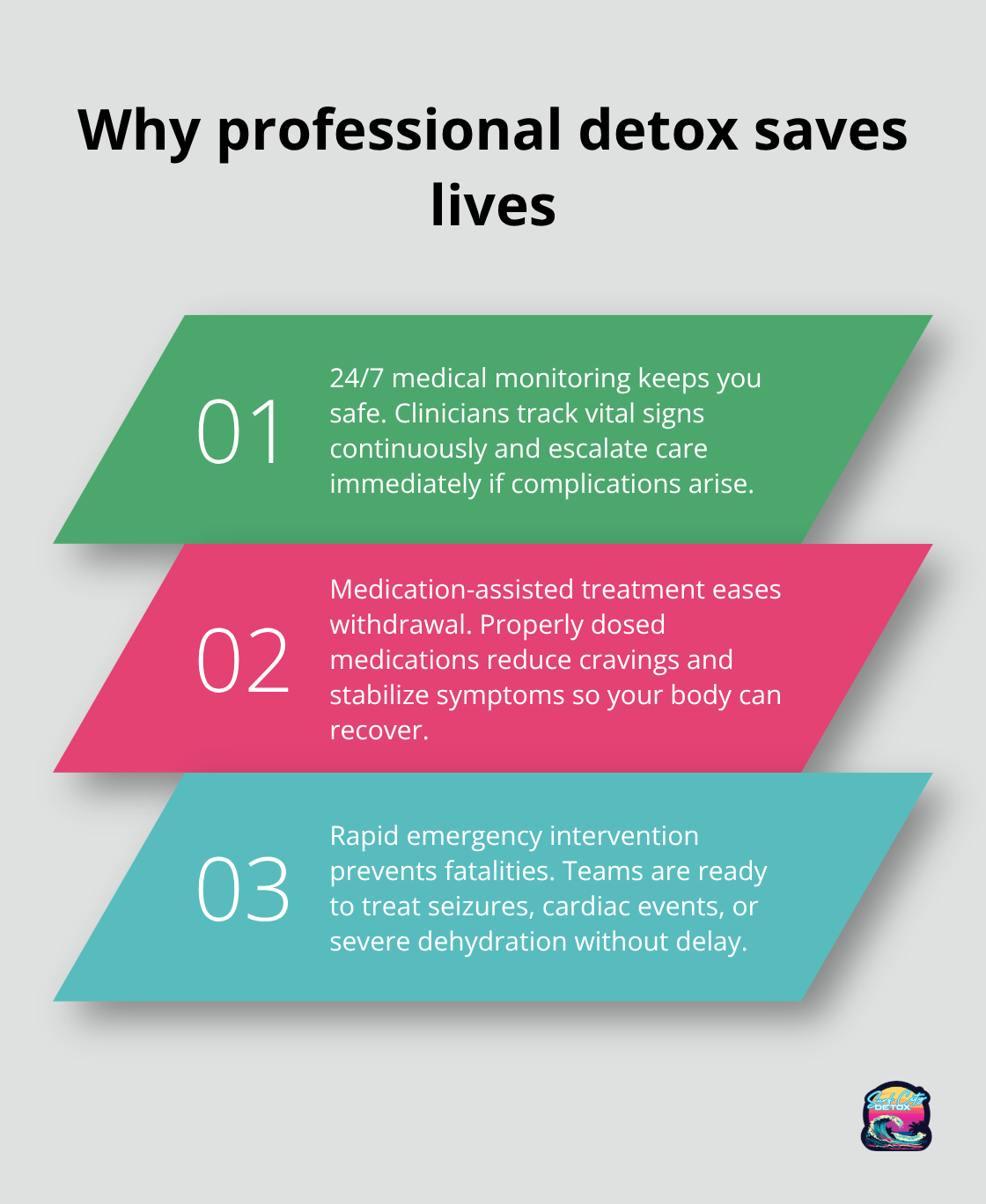
Medical Supervision Prevents Fatal Complications
Self-detox carries serious risks that most people underestimate. Alcohol and benzodiazepine withdrawal can trigger seizures, delirium tremens, and cardiac arrest within hours. The National Institute on Alcohol Abuse and Alcoholism data shows that less than 10 percent of people with alcohol use disorder receive treatment, highlighting the need for professional medically supervised detox. Professional facilities use medications like Librium for alcohol withdrawal and buprenorphine for opioid addiction to manage symptoms safely. Staff monitor vital signs continuously and adjust treatment protocols based on individual responses.
Detox Creates the Foundation for Long-Term Recovery
Detox serves as the critical first phase of comprehensive addiction treatment, not a standalone solution. The National Institute on Drug Abuse emphasizes that detox alone rarely leads to sustained recovery – it simply removes substances from the body and stabilizes medical conditions. Successful detox programs connect clients directly to residential treatment, intensive outpatient programs, or other care services. This seamless transition prevents the dangerous gap between detox completion and therapy that often leads to immediate relapse.
What Happens During Professional Detox
Medical professionals assess each client’s physical condition, substance use history, and mental health status before treatment begins. They create individualized protocols that address specific withdrawal patterns (alcohol withdrawal typically peaks around days 5-7, while opioid symptoms often intensify within 24-48 hours). Nurses administer IV hydration, nutritional support, and medications to manage nausea, anxiety, and pain. This comprehensive approach reduces complications and prepares clients for the next phase of their recovery journey.
What to Expect During Your Drug Detox Experience
Your detox experience begins with a comprehensive medical assessment that determines your treatment protocol and safety requirements. Licensed clinicians conduct physical examinations, review your substance use history, and evaluate co-occurring mental health conditions within the first few hours of arrival. This assessment includes blood work, EKG tests, and psychological screenings to identify potential complications like seizure risk for alcohol withdrawal or cardiac issues from stimulant use. The intake process typically takes 2-4 hours and creates your individualized treatment plan based on the specific substances involved, duration of use, and previous detox attempts.
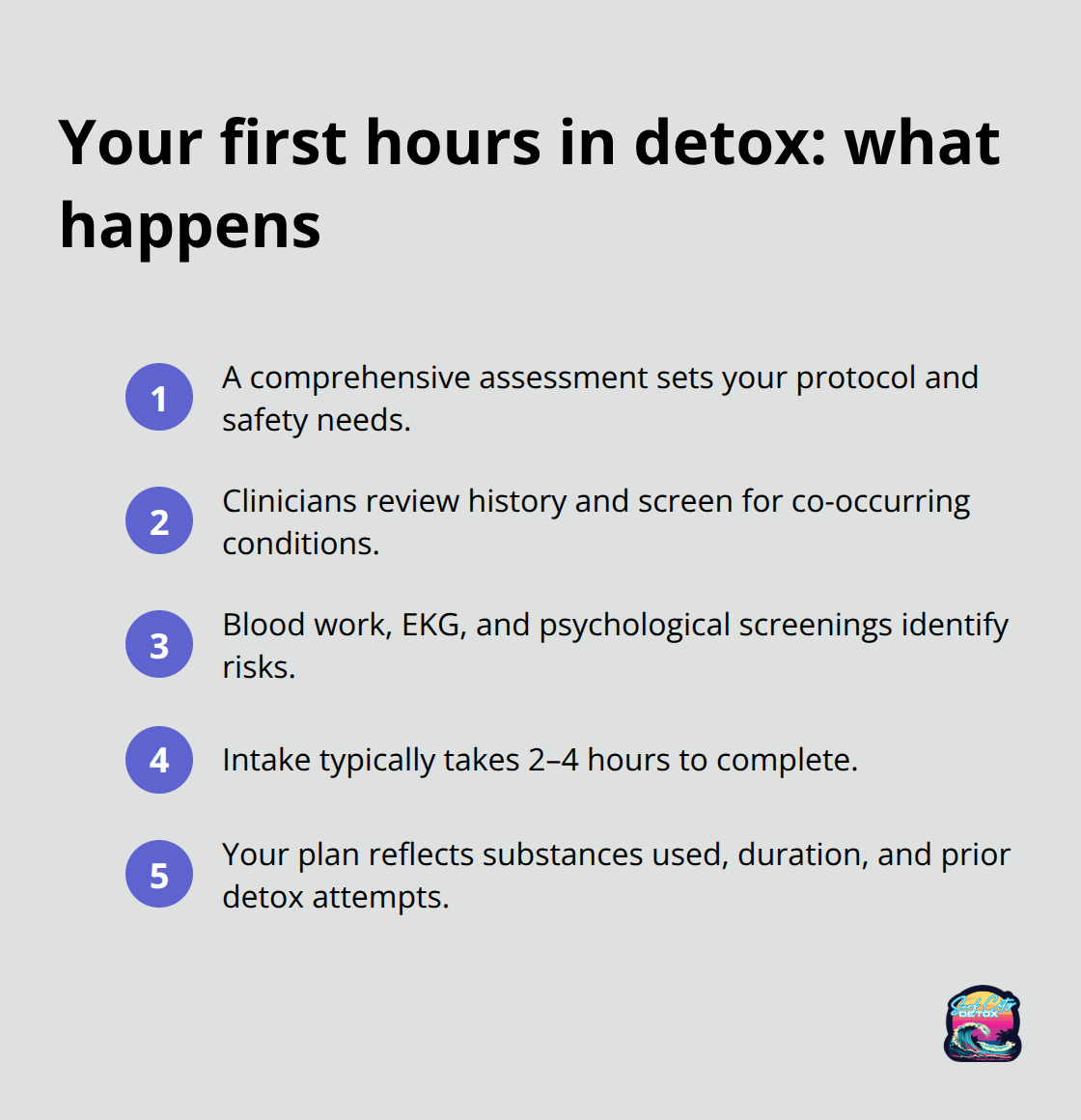
Medical Monitoring Prevents Life-Threatening Complications
Professional detox facilities provide continuous vital sign checks and immediate medical intervention when dangerous symptoms emerge. Nurses check blood pressure, heart rate, and temperature every 2-4 hours during the first 72 hours when withdrawal symptoms peak. Medical staff administer IV fluids to prevent dehydration from vomiting and sweating, while detox medications like Ativan manage anxiety and prevent seizures during alcohol withdrawal. For opioid detox, facilities use Suboxone or methadone to reduce cravings and minimize the intensity of physical symptoms that typically last 5-10 days.
Withdrawal Symptoms Follow Predictable Timelines
Alcohol withdrawal symptoms begin 6-24 hours after your last drink, with tremors and anxiety appearing first, followed by potential hallucinations and seizures between days 2-4. Opioid withdrawal starts within 12 hours for short-acting drugs like heroin, with muscle aches, nausea, and insomnia that peak around day 3 before they gradually subside. Benzodiazepine withdrawal can last weeks or months due to the drugs’ long half-life, requiring careful tapering protocols to prevent dangerous rebound anxiety and seizures. Professional facilities adjust medication dosages daily based on symptom severity scales and individual responses to treatment.
Comfort Measures Support Your Recovery Process
Medical teams focus on symptom management through proven comfort protocols that reduce physical distress. Staff provide heated blankets for chills, anti-nausea medications for stomach issues, and sleep aids for insomnia that commonly affects detox clients. Nutritional support includes vitamin B supplements for alcohol withdrawal and electrolyte replacement for dehydration. These interventions help stabilize your physical condition while your body eliminates harmful substances and prepares for the therapeutic work ahead.
How to Choose the Right Drug Detox Center for Your Needs
Accreditation and Licensing Requirements
The Joint Commission accreditation stands as the gold standard for addiction treatment quality, with accredited facilities providing superior treatment outcomes according to SAMHSA data. When you evaluate detox centers, verify their Joint Commission certification and state licensing through your Department of Health Care Services website. California-licensed facilities undergo regular inspections and maintain strict clinical protocols that protect your safety. Avoid unlicensed facilities that promise quick fixes or guarantee outcomes – legitimate centers focus on medical safety and evidence-based treatment protocols rather than marketing claims.
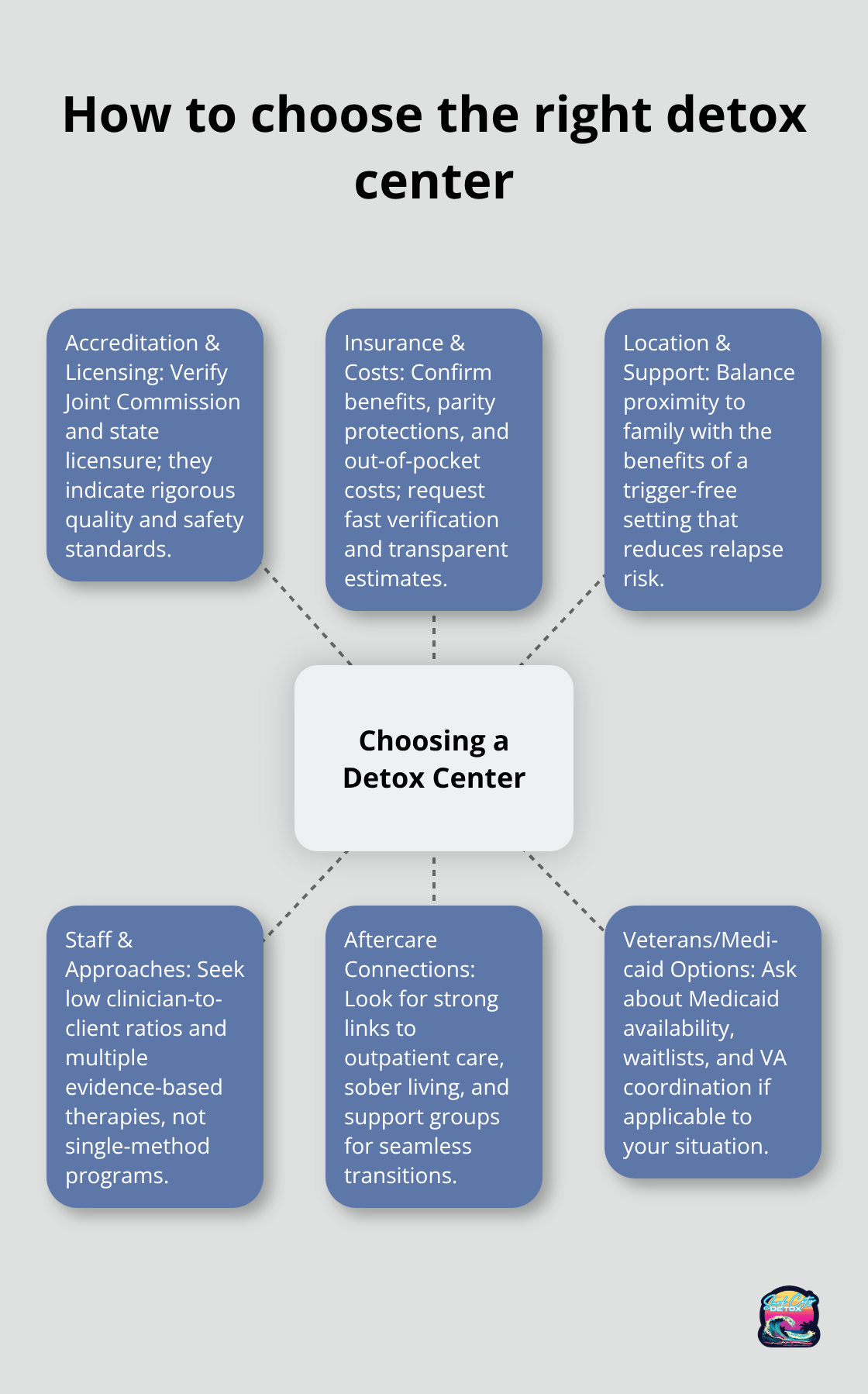
Insurance Coverage and Payment Options
Contact your insurance provider before you visit any facility to verify your behavioral health benefits and understand your out-of-pocket costs. The Affordable Care Act requires most insurance plans to cover substance use disorder treatment with parity protections between mental health and medical benefits, but coverage varies significantly between plans. Many quality detox centers employ insurance specialists who verify benefits within hours and explain your financial responsibility upfront. Medicaid and state-funded programs serve low-income individuals, though waiting lists often extend several weeks (Veterans receive comprehensive addiction treatment through VA medical centers, which coordinate seamlessly with civilian facilities when needed).
Location Considerations and Support Systems
Choose detox centers within reasonable distance of your support system while you consider the benefits of removing yourself from triggering environments. Huntington Beach facilities offer therapeutic coastal settings that research shows reduce cortisol levels and promote relaxation during recovery. Local centers provide easier family involvement in treatment, but out-of-area facilities eliminate access to dealers and using partners who sabotage early recovery efforts. Evaluate the center’s aftercare connections in your home area – successful programs maintain relationships with outpatient therapists, sober living homes, and support groups that continue your care after discharge.
Staff Qualifications and Treatment Approaches
Quality detox centers maintain clinical staff ratios of one licensed clinician for every six to eight clients (this ratio allows for personalized care and immediate response to medical emergencies). Look for facilities with low staff turnover rates below 20%, which indicate stable and experienced teams that foster strong therapeutic relationships. The best programs combine multiple evidence-based methods like Cognitive Behavioral Therapy and Medication-Assisted Treatment rather than relying on single approaches. Staff should include licensed addiction counselors, registered nurses, and physicians who specialize in addiction medicine and can address both withdrawal symptoms and co-occurring mental health conditions.
Final Thoughts
Your search for drug detox centers near me represents courage and hope for a better future. Professional detox provides the medical safety and support you need to begin recovery successfully. The National Institute on Drug Abuse confirms that medically supervised withdrawal management significantly improves treatment outcomes compared to self-detox attempts.
SAMHSA’s treatment locator helps you find accredited facilities in your area, while your insurance provider can verify coverage options. Look for Joint Commission-accredited centers with licensed medical staff and evidence-based treatment approaches. Quality facilities offer transparent pricing, family involvement opportunities, and clear aftercare connections (these elements indicate comprehensive care standards).
We at Surf City Detox provide comprehensive addiction treatment in Huntington Beach. Our team combines medically supervised detox with residential care and dual diagnosis support under one roof. Contact Surf City Detox today to speak with our compassionate intake specialists who will verify your insurance and guide you through the admission process.

